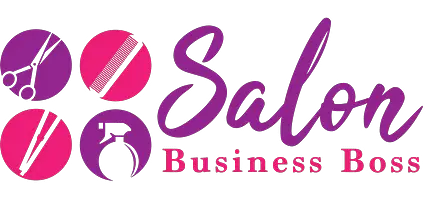Do you have a passion for making people feel great? Is your passion creating a more beautiful world? Would you like to turn your penchant for being a social butterfly into a lifelong career? Building an empire with your hair salon may be just the thing for you!
How to get your salon business license: First and foremost, you will need a cosmetology license to become a salon owner who provides services to clients. Secondly, you will need to formulate and stick to a business plan for your hair salon. Lastly, you will need to research the permits, regulations, and licensures that apply to your specific area (these will vary from state to state and from city to city) and acquire those specified by your area.
If you want to turn your passion for beauty into a profitable career, this article has been written to assist you in pursuing that dream. Maybe you’ll be the next Brad Mondo!
How do I get a cosmetology license?
You will need to check with your specific state, but most states will require you to enroll in an accredited cosmetology program to qualify to take your state’s cosmetology licensing exam. Checking with your state’s licensing body will tell you exactly how many educational hours you will have to complete to meet the requirements set by your state, but you can plan on devoting anywhere from 1,000 to 2,100 hours of coursework.
You can check the requirements of your state here, but you will need to be sure and follow up by researching directly with your state’s licensing body.
I have my license, do I need a business plan?
Most successful small-business owners begin their journey with a business plan and the beauty industry is no exception. As a future salon owner, you will need to be sure to have a solid business plan and a budget to work with.
A successful business plan will include your customer segments, marketing channels (like social media, radio advertisements, or television commercials), key resources, revenue streams, essential business relationships, supplier plans, cost structures, just to name a few.
Building a successful hair salon involves so much more than painting the walls a soothing color and getting heads in chairs. Creating and implementing a solid business plan will aid in turning your highlight reel into a full-color production.
Check out how to write a business plan HERE.
Business plan: ☑, what’s next?
So, you’ve met with an attorney or business planner and lined out a solid business plan. The next step in turning your scissors golden is to determine your costs and how to pay for them.
A cornerstone of your business plan for your hair salon should include a base number that indicates how much money it will take to run your business. The reality of opening a hair salon is that between upfront costs (permits, licensing, base inventory, renovations, supplies, etc.) and continued operating costs (rent, training, insurance, inventory, etc.), it could be months, possibly more than a year, before you have a truly profitable business. You have to plan for the worst and work toward the best.
Planning could involve making a visit to a loan officer at your local credit union or bank branch to discuss your options for a small business loan, as well as enlisting the help of a certified public accountant (CPA) who can assist you with the planning and filing of the taxes associated with your new venture.
The significant canons of opening and properly managing a hair salon will be your operating costs and how you will charge for your products and services to turn a profit. Operating costs are solely in your hands and will depend on the size and scope of your styling vision.
You need to note that product pricing is fairly universal in the beauty industry, it is normally around a 50% markup from your wholesale purchase price. Service pricing, however, can vary from salon to salon. By checking the pricing of comparable salons in your area, you can set your service pricing. You don’t want to be known as the cheapest place in town, do you?
I’ve got my business plan in hand and numbers crunched, where do I go from here?
Once you’ve determined your costs and budget, the next step in opening the doors to the hair salon of your dreams is to find the perfect location.
A huge part of choosing the location of your new salon is to make sure it is centrally located in an area with a large amount of passing traffic and ample parking. Another consideration to take into account is remaining close to the location where your clients have been previously visiting you if you are an established stylist in the area.
When finding the perfect venue for your hair salon, you’ll also need to note other salons in the area. If your city has ample salons, the location you choose can make or break your business.
My location is perfect, I’m ready to make it my own!
I know you have a grand vision for your new salon (you’ve outlined it in your business plan, right?) from how it will look, run, and feel to your clientele to signage on the front of your building to the exact shade of blue on your walls. Shiny visions normally are accompanied by even shinier price tags, ones that you may not be able to afford during your fledgling days as a salon owner.
One of the major startup costs for a new hair salon is equipment. Equipment for your salon can be costly. You don’t, however, have to buy the top-of-the-line tools and implements when you first start. By perusing Craigslist, eBay, or other sales sites, you can find quality hardware for a much lower price. You can upgrade your equipment as you need, and as you can afford it. Just remember, you can start small and still become big!
There are numerous ways to make your new styling salon cozy and inviting without bankrupting yourself. Keep your space tidy, offer ‘added’ services (like on-the-house scalp massages with a style), and play music (most streaming services have low-cost options that won’t have your clientele listening to advertisements for apartments.com every five minutes). A free mimosa, a glass of wine, or mug of coffee won’t cost your salon much but can make a world of difference to the customer sitting in your chair.
That mantra of “start small and become big” doesn’t just apply to your equipment, but your salon space and product inventory as well. There is no set standard that states you have to start in the largest space possible, that space may not be in your budget (yet!). Choose a space that will allow for the most growth for you and your stylists financially and you can focus on increasing your floor space later on. The same goes for an inventory of products in your salon. Unsold/unused products are the equivalent of just setting your money on fire.
If cutting corners, doing things yourself, and sales sites have brought you in under your projected budget, stop yourself from making upgrades too quickly (those chairs are just fine, you don’t need new ones yet!). You’ll need to keep in mind the “hidden” costs of operating your new salon.
There are a lot of small expenses that can add up in the long run. From printing service menus to purchasing business cards, there are a ton of little things you need to account for. Save the money you saved for things that your salon may need down the road!
I’ve outfitted my salon perfectly (within budget), can I open now?
Although you may have found the perfect location that fits your every need, implemented a solid business strategy, and outlined a working budget, you aren’t quite ready to open just yet. The next step in the beauty salon process is the bureaucratic one: licensing, permits, regulations, and insurance.
Insurance is legally required for a vast majority of businesses (even if it weren’t, you would want it anyway!). Business insurance has been cited as one of the most unexpected start-up costs, mainly due to the multiple forms it can take–yourself, your business space, your clients, your employees, and so on. You’ll want to review your policy with your business planner, attorney, or CPA to ensure that you’re being insured to the fullest extent!
Beyond business insurance, you’ll need to be ready to jump through some bureaucratic hoops. These can include:
- Acquiring the appropriate business license(s) for your area.
- Planning and scheduling health and fire marshal inspections.
- Securing all licenses for yourself and your employees according to your state’s requirements.
- Speaking with your city officials to secure any permits you will need to legally open and operate your salon.
As a new business owner, it is wise to do your homework beforehand and ask established salon owners and members of your local government what will be expected of you when opening the doors of your new salon venture.
Just make sure you’re wearing your comfortable shoes, sometimes the hoops come in droves!
I survived the bureaucratic circus, what’s next on the agenda?
After you dust the glitter off from your performance, the next step to getting your new hair salon open is to hire a great staff.
Just as it is important to choose the best location for your beauty salon, hiring the right group of stylists can build a beautiful business. You don’t want to simply hire staff to fill seats, you want to hire a group of individuals who can share in your vision and promote your salon to the fullest. The stylists you choose will set the tone for the reputation of your new salon.
This business is your baby and you have the right to choose who you have caring for and nurturing your child.
I have found my team of stylists, where do I go next?
With your business plan in hand, budget in place, location, and staff chosen, licensing and permits secured, and insurance premiums paid, it’s time to put faces in your mirrors and get to work.
Begin by contacting previous clients (who I hope you’ve kept in the loop on your new salon venture) and have your stylists do the same. Offer an incentive for your clients to follow you and your staff, as a small treat with a first service, and encourage them to refer others (you can offer a client referral incentive, as well).
In addition to bringing your prior clientele to your new salon, you must find paths to bring new customers to your chairs, as well. Social media is a great, and inexpensive means by which to reach new clients, as well as maintain constant contact with previous ones. You can highlight clients (with their permission, of course) who have undergone a hair transformation, as well as showcase any unique services that set your salon apart from the others in your area.
Local advertising is another way to make your name known. It can be a bit more costly than utilizing free social media platforms, but it is an investment worth making. Take advantage of local high school sports by purchasing advertising space in their programs, on shirts, and in their fields/courts. You can target specific customer segments by doing so.
Yes, you can hire a marketing specialist, but at this point in your venture, it’s an added expense that you may not be able to take on without sacrificing in other areas.
The final cut!
If you have even been a return customer at a salon, you can confirm appreciating the sense of togetherness that a hair salon can bring, as well as the great styling you can walk out the door with.
To ensure that YOUR hair salon meets both of these important aspects of the beauty business, you must create and follow your business plan, be properly licensed, permitted, and insured, well-outfitted, and located (within your budget, of course), and utilizing all marketing avenues to the fullest. The rest, primarily the quality of services offered, is literally in your hands.
Related Questions

-
Do I have to have a cosmetology license to own and open a hair salon?
Though commonly, salon owners are cosmetologists, they do not technically have to be. In most states, it is not required to possess a cosmetology license to simply own a styling salon. As an unlicensed owner, however, you cannot provide or assist in any services being offered in your salon.
Looking to start your own Salon? Get the documents you need to get organized and funded here.
Please note: This blog post is for educational purposes only and does not constitute legal advice. Please consult a legal expert to address your specific needs.

About the author. Entrepreneur and Salon Business Fan.
Hi! I am Shawn and I am a happy individual who happens to be an entrepreneur. I have owned several types of businesses in my life from a coffee shop to an import and export business to an online review business plus a few more and now I create online salon business resources for those interested in starting new ventures. It’s demanding work but I love it. I do it for those passionate about their business and their goals. That’s why when I meet a salon business owner, I see myself. I know how hard the struggle is to retain clients, find good employees and keep the business growing all while trying to stay competitive.
That’s why I created Salon Business Boss: I want to help salon business owners like you build a thriving business that brings you endless joy and supports your ideal lifestyle.



